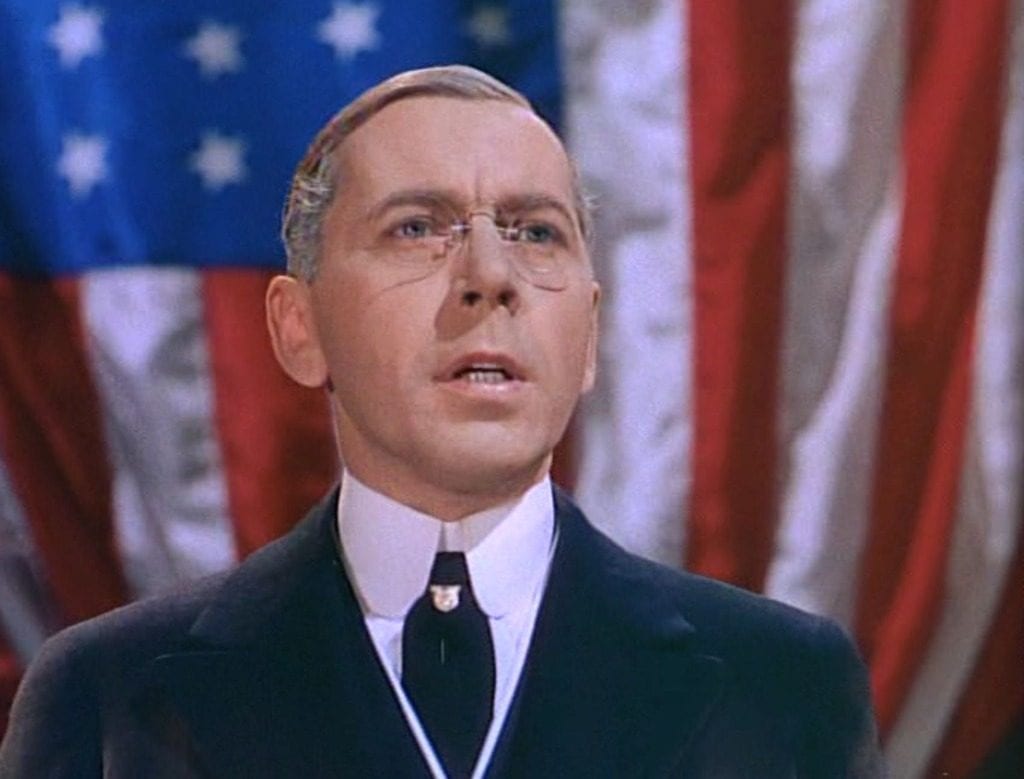Alexander Knox: A Canadian Actor's Enduring Legacy
In the vast tapestry of cinematic history, certain names resonate with a quiet power, their contributions shaping the very fabric of storytelling on screen and stage. Among these distinguished figures is the Canadian actor Alexander Knox, a performer whose career spanned decades, leaving an indelible mark on both theatre and film. From his early days distinguishing himself on the London stage to earning an Academy Award nomination for his portrayal of a U.S. President, Knox embodied the essence of a versatile and dedicated artist. This article delves into the life, career, and enduring legacy of a man who brought countless characters to life with remarkable depth and authenticity.
An actor, by definition, is one who acts, bringing characters to life through performances in various forms of entertainment, including theatre, film, television, and radio. They may be professional or not, sometimes focusing solely on singing or dancing, but always embodying a role. Alexander Knox exemplified this dedication, showcasing a range that allowed him to transition seamlessly between mediums, earning him critical acclaim and a lasting place in the hearts of those who appreciate profound acting. His journey from a young man in Canada to a celebrated figure in Hollywood and the British film industry is a testament to his talent and perseverance.
Table of Contents
- Biography: The Life and Times of Alexander Knox
- Personal Data and Biodata
- The Essence of an Actor: Defining the Craft
- Early Life and Theatrical Beginnings
- Hollywood Calling: The 'Wilson' Era
- A Career of Diversity and Resilience
- Notable Roles and Critical Acclaim
- Alexander Knox's Enduring Legacy
Biography: The Life and Times of Alexander Knox
Alexander Knox was born on January 16, 1907, in Strathroy, Ontario, Canada, where his father served as a minister. His early life in a quiet Canadian town gave little hint of the global stage he would eventually command. Educated at the University of Western Ontario, Knox developed a keen intellect and a passion for the performing arts. Unlike many who dream of immediate stardom, Alexander Knox took a deliberate path, honing his craft in the traditional medium of the theatre. As a young man, he made the pivotal decision to move to London, England, in the 1930s. This move proved instrumental in shaping his career. It was on the British stage that he truly distinguished himself, earning a reputation as a formidable stage actor throughout the 1930s. During this decade, he also began appearing in film productions there, laying the groundwork for a prolific career that would see him grace over 100 film, television, and theatrical productions. His career spanned from the 1920s until his passing in 1995, a remarkable testament to his dedication and versatility. His most iconic role came in 1944 when he portrayed President Woodrow Wilson in the biographical film 'Wilson'. This performance garnered him a Golden Globe Award and an Academy Award nomination for Best Actor, cementing his status as a leading man in Hollywood. Despite this success, Knox's liberal views reportedly caused friction within the industry, forcing him to navigate a complex landscape during a politically charged era. Beyond his acting prowess, Alexander Knox was also a gifted author and playwright, showcasing his talents across multiple creative disciplines. He wrote several novels and plays, further illustrating his profound understanding of storytelling and character development. Knox passed away on April 25, 1995, in his adopted home of London, England, leaving behind a vibrant legacy that continues to inspire countless performers who followed in his footsteps. It is crucial to note, to avoid any confusion, that the Alexander Knox discussed here is *not* Mark Alexander Knox, better known as Flex Alexander, the American actor, comedian, and dancer born in 1970. Our focus remains solely on the distinguished Canadian actor and author.Personal Data and Biodata
| Category | Detail |
|---|---|
| Full Name | Alexander Knox |
| Date of Birth | January 16, 1907 |
| Place of Birth | Strathroy, Ontario, Canada |
| Date of Death | April 25, 1995 |
| Place of Death | London, England |
| Nationality | Canadian |
| Occupation | Actor, Author, Playwright |
| Education | University of Western Ontario |
| Notable Awards | Golden Globe Award (for 'Wilson') |
| Academy Award Nominations | Best Actor (for 'Wilson') |
| Active Years | 1920s - 1990s (spanning over 60 years) |
| Known For | 'Wilson' (1944), 'The Vikings', 'The Longest Day', 'Europa '51' |
The Essence of an Actor: Defining the Craft
To truly appreciate the career of Alexander Knox, it's important to understand the multifaceted nature of what it means to be an actor. An actor is fundamentally a storyteller, someone who brings characters to life through their performances. This involves not just reciting lines, but embodying a role, delving into the psyche of a character, and conveying emotions and motivations that resonate with an audience. Whether performing in the flesh in the traditional medium of the theatre, or in the more intimate and often magnified world of film and television, the core responsibility remains the same: to act, to make believe, and to make the audience believe. The range of an actor is crucial. It refers to their ability to portray diverse characters across different genres and emotional spectrums. William Holden, for instance, was celebrated for his range in movies like 'Sunset Boulevard' and 'Stalag 17'. Similarly, Alexander Knox demonstrated an impressive range, allowing him to portray historical figures, military leaders, and complex dramatic characters with equal conviction. The greatest actors, as recognized by institutions like AFI, are those whose names and faces have defined cinema for decades, not just through raw talent but through global appeal and box office success. While discussions often dwell on who is the "most famous actor," the true measure lies in their ability to captivate, transform, and leave a lasting impression, qualities Alexander Knox possessed in abundance.Early Life and Theatrical Beginnings
Alexander Knox's journey into acting began far from the bright lights of Hollywood. Born in Strathroy, Ontario, he received his education at the University of Western Ontario, a foundation that likely contributed to his intellectual approach to his craft. His ambition, however, soon led him across the Atlantic. In the 1930s, as a young man, he moved to London, England. This move was a defining moment, as it was in the vibrant theatrical scene of London that he truly began to distinguish himself. The British stage of the 1930s was a crucible for talent, demanding discipline, vocal prowess, and a deep understanding of dramatic texts. Alexander Knox thrived in this environment, earning critical acclaim as a stage actor. His performances in plays on both the London stage and later on Broadway showcased his ability to command an audience's attention and convey profound emotion without the aid of close-ups or editing. This rigorous theatrical training provided him with an unparalleled foundation, allowing him to seamlessly transition into film, where he also began appearing in productions throughout the decade. His early career was a testament to the power of traditional acting, where the actor performs in the flesh, building a character from the ground up, night after night.Hollywood Calling: The 'Wilson' Era
The pinnacle of Alexander Knox's early film career undoubtedly arrived with his starring role in the 1944 biographical film 'Wilson'. Directed by Henry King, the film chronicled the life of Woodrow Wilson, the 28th President of the United States. This was a demanding role, requiring not just a physical resemblance but also the ability to convey the intellectual depth, moral conviction, and personal struggles of a historical figure. Knox rose to the challenge magnificently. His performance as Wilson was met with widespread critical acclaim. Bosley Crowther, commenting for The New York Times on August 2, 1944, lauded his portrayal, stating, "Much of the film's quality is due to the performance of Alexander Knox in the title role. Knox draws a character that is..." The rest of Crowther's commentary, though not fully provided in the data, clearly indicated a highly sympathetic and finely balanced portrayal, capturing both passion and poise, as echoed by Theo Bosanquet of Time Out. This role earned Alexander Knox a Golden Globe Award for Best Actor and, more significantly, an Academy Award nomination for Best Actor. While he did not win the Oscar, the nomination itself was a profound recognition of his talent and dedication to his craft, solidifying his reputation as a formidable dramatic actor on the international stage.A Career of Diversity and Resilience
Alexander Knox's career was not defined by a single role, but by its sheer breadth and longevity. Spanning from the 1920s until his death in 1995, he appeared in over 100 film, television, and theatrical productions. This extensive body of work speaks volumes about his versatility and his enduring appeal to directors and audiences alike. He moved effortlessly between different genres, from historical dramas to war films, and from intense character studies to more lighthearted fare. His ability to inhabit a wide array of characters, making each one distinct and believable, was a hallmark of his acting style. Whether playing a compassionate doctor, a stern military officer, or a troubled intellectual, Knox brought a quiet intensity and thoughtful approach to every part. This commitment to his craft allowed him to maintain a consistent presence in an often fickle industry for over six decades, a feat few actors achieve.Beyond the Silver Screen: A Man of Letters
What truly set Alexander Knox apart from many of his contemporaries was his parallel career as a man of letters. He was not merely an actor who performed scripts; he was also a novelist and a playwright. This dual talent highlights his profound understanding of storytelling from both sides of the creative process. His experience as an actor undoubtedly informed his writing, giving him unique insights into character development, dialogue, and narrative structure. Conversely, his writing pursuits likely deepened his appreciation for the texts he performed, allowing him to approach his roles with greater intellectual rigor and emotional nuance. This aspect of his career underscores his commitment to the arts in their broadest sense, proving him to be a true artist in every meaning of the word.Navigating Challenges: Liberal Views in Hollywood
The data explicitly mentions that "Despite his liberal views forcing..." This brief but significant phrase hints at the challenges Alexander Knox faced in his career, particularly during the politically charged atmosphere of the mid-20th century, which included the McCarthy era in Hollywood. During this period, individuals with perceived "liberal" or "left-leaning" views often found themselves blacklisted or marginalized within the entertainment industry. While the specific details of how his views "forced" him to navigate certain situations are not elaborated, it suggests that Knox's personal convictions may have impacted his career trajectory, perhaps limiting certain opportunities or requiring him to work more extensively in the less politically scrutinized British film and theatre industries. His resilience in maintaining such a long and prolific career despite these potential obstacles speaks to his talent and determination, refusing to compromise his principles even in the face of professional adversity. It paints a picture of an actor who was not just dedicated to his art but also to his beliefs.Notable Roles and Critical Acclaim
Beyond 'Wilson', Alexander Knox accumulated an impressive filmography that showcased his versatility and continued ability to deliver compelling performances. His filmography includes a mix of large-scale productions and more intimate, character-driven dramas, demonstrating his adaptability across different cinematic styles.The Vikings and The Longest Day
Among his most widely recognized films are two epic historical and war dramas: 'The Vikings' (1958) and 'The Longest Day' (1962). In 'The Vikings', a grand adventure film starring Kirk Douglas and Tony Curtis, Knox played a supporting role, contributing to the film's dramatic weight. His presence in such a major production indicated his continued relevance in Hollywood. 'The Longest Day', an ambitious retelling of the D-Day landings, featured an ensemble cast of international stars. In this monumental film, Alexander Knox played a key role as a British officer, bringing his characteristic gravitas and authenticity to the portrayal. These roles, while perhaps not as central as 'Wilson', placed him in highly visible productions and allowed him to work alongside some of the biggest names in cinema, further cementing his status as a reliable and respected character actor.Europa '51 and Other European Ventures
Alexander Knox's career was truly international, extending beyond Hollywood and the British Isles to include significant work in European cinema. One notable example is his role in Roberto Rossellini's 1952 Italian neorealist drama 'Europa '51' (also known as 'The Greatest Love'). Working with acclaimed director Rossellini and starring alongside Ingrid Bergman, Knox demonstrated his ability to adapt to different filmmaking styles and languages of cinema. His performance in 'Europa '51' showcased his range in a more introspective and emotionally complex role, proving his talent transcended cultural and linguistic barriers. These European collaborations underscore his global appeal and his commitment to diverse and challenging projects throughout his career.Alexander Knox's Enduring Legacy
Alexander Knox passed away on April 25, 1995, in his adopted home of London, England, at the age of 88. His death marked the end of a remarkable career that spanned over seven decades, leaving behind a rich tapestry of performances across theatre, film, and television. His legacy, however, remains vibrant in the world of acting. He is remembered not just for his iconic portrayal of Woodrow Wilson, which earned him a Golden Globe and an Academy Award nomination, but for his consistent professionalism, his intellectual approach to character, and his quiet dignity both on and off screen. Knox's work continues to inspire countless performers who followed in his footsteps. His dedication to his craft, his versatility across mediums, and his ability to embody complex characters with depth and nuance serve as a masterclass for aspiring actors. He demonstrated that an actor's impact is not solely measured by box office numbers or celebrity status, but by the quality of their work, their artistic integrity, and their lasting contribution to the art of storytelling. Alexander Knox was more than just an actor; he was a true artist, a man of letters, and a quiet force in the golden age of cinema and beyond, whose influence continues to be felt by those who cherish authentic and powerful performances.What are your favorite Alexander Knox performances? Have you discovered any of his plays or novels? Share your thoughts and memories in the comments below! If you enjoyed learning about this Canadian acting legend, consider sharing this article with fellow film enthusiasts or exploring other biographies of classic Hollywood and British actors on our site.
- When Did The Iraq Iran War Start
- Isreal News Iran
- Is Iran A Communist Country
- Tourist Attractions Iran
- Old Name Of Iran And Iraq

Alexander Knox | Actor - People - 1000 Towns of Canada

Pictures of Alexander Knox

Pictures of Alexander Knox